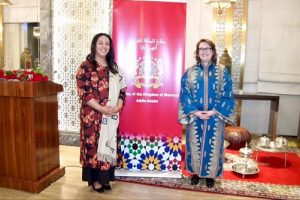BY TEKELEBIRHAN GEBREMICHEAL
It may sound trite to state that leadership is decisive in the process of economic development. Granted, it may be so, but it is an irrefutable truth that has stood the test of time all over the world from Singapore to Japan, from South Korea to the United States of America.
Under Haiesellasie non –availability of land for commercial farming, agro –industries and other industries was not an insurmountable problem, although vast land holdings by feudal landlords did present undesirable difficulties. Bank loans for agricultural and industrial development were made available in reasonably adequate amounts by the then Agricultural and Development Bank.
What was in fact conspicuously absent was entrepreneurial talent of the higher quality largely because of the general orientation of the educational system towards white –collar jobs and positions mainly in the civil service. In fact this basic problem had begun to be gradually mitigated through the establishment of a center for entrepreneurship and other related institutions and through the re-orientation of the educational system towards vocational training.
Already in the early and mid -1960’s (with the exception of the drought year) these pro- development measures had begun to bear fruit particularly in the shape of the sprouting of several large –scale commercial farms, livestock development enterprises and consumer- goods agro-industries and other industries. Aided by the high land/population ratio (the population then was only about 30 million), the standard of living in real terms, particularly in urban areas, was quite comfortable. I am myself a living witness as my standard of living in real terms then was at least ten times higher than now!
However, the sentiment among the Ethiopian youth, especially among university students, was that the rate of economic growth and development was not fast enough and that the underlying cause was the existing feudal order headed by the monarchy. Drought and famine, rising unemployment and inflation and their negative consequences hardened the sentiments of the intellectual elite and those of the people who were directly affected by the unfavorable economic conditions.
Most of the intellectual elite seemed to have resolved that the lack of adequate economic progress was a consequence of the inefficient leadership of the exploiting feudo- bourgeois regime. However, compared to the Mengistu and Meles regimes, what was already
Smart people do not fight over money
because they make it
beginning to happen in the early 1960’s and even in the drought year of 1965/66, was a reasonably credible testament to the nascent capitalism–and- broad-based economic development that was beginning to flourish in Ethiopia.
However, the fledgling capitalist development was nipped in the bud by the socialist –cum-communist Derg regime. To be fair, the Derg affected a one –off land redistribution which undeniably temporarily raised the standard of living of the peasant farm population. But socialism killed the power of self –interest to accumulate capital and extend the frontiers of production, although the Derg regime did try to replace this basic drive with moral incentives and nationalism, (i.e. Ethiopian nationalism) copying the experience of China.
In all honesty, Mengistu’s cabinet ministers, including Tesfaye Dinka, Hailu Yemenu, Hailu Shawal, etc. were extremely capable technocrats and bureaucrats and might have registered greater results had Mengistu not allowed the guerrilla uprising led by Shabia and Woyane to get out of control and consume nearly 60 percent of the national budget during the final phases of the devastating civil war. The Derg’s leadership in the face of a raging civil war aided and abetted by Ethiopia’s historical enemies was simply appalling and the endgame had long been predicted.
The Derg’s ignominious defeat by Shabia and Woyane led to Ethiopia’s worst political and economic disaster. Ethiopia lost its access to the sea and became the largest land- locked country in the world and the TPLF (Woyane) constructed the world’s most abominable economic system of state capture and patronage.
The TPLF and its docile acolytes plundered tens of billions of dollars and hid the loot abroad. At home, the spoils of war included high rise buildings, luxury villas and automobiles, pampered business enterprises, land holdings, etc. Corruption levels hit all –time record highs. The TPLF /EPDRF’s monopoly power on land, bank credit, budgetary resources, and foreign exchange created a corrupt unproductive and dictatorial ruling class which deliberately impoverished the people and left them poorly educated and trained. The TPLF/EPRDF leadership was perhaps the worst Ethiopia has ever faced in its long history.
There is very little doubt now that Haileselassie’s regime was the best of the three eras of the monarchy, the military dictatorship and the now defunct TPLF/EPRDF sectarian aberration. It remains to be seen what direction the Prosperity regime will take in the coming months and years after it has successfully and forciblyremoved the TPLF cabal from power.
The political and economic challenges facing the new government are massive. At present it is still fighting for some kind of political legitimacy. The fact that it has almost completely toppled the TPLF “Junta”is taken by many as a big plus, but it definitely has to do a lot more to establish a reasonably high level of political credibility.
As far as the economic side of the story is concerned, the new government should form a leadership that is extremely competent, resilient and result – oriented. Above all, it must be uncorrupt and incorruptible. Ministers and heads of the following economic institutions are critical:
• Ministry of Finance
• National Bank of Ethiopia
• Planning and Development Commission
• Inland Revenue and Customs Authorities
• Presidents of CBE and DBE
• Ministry of Agriculture
• Ministry of Industry and Trade
• Government Development agencies including Roads, Transport, Electricity, Telecom, Ethiopian Airlines, Railways,
• Ministry of Education, Ethics and Anti–corruption Commission.
• Ministry of Health, etc.
On the other hand, key new institutions that should be created include a ministry of land reform and administration, establishment a government –owned mortgage bank, project study and analysis institutions for agriculture, industry, services and infrastructure and a center for entrepreneurship. Foreign technical assistance may be sought in the establishment of new economic institutions and reform of existing ones.
The TPLF/EPRDF government had undertaken extensive civil service reforms but their outcomes have not to this day contributed to any better management and administration of the national economy. In this regard, the newly formed high –level Council of Economic Advisors should accord due priority to extensive administrative reforms required in the existing 58 federal offices including 16 ministries and in the deployment of some 1.8 million government employees at the federal and regional levels.
It is quite understandable that the Council of Economic Advisors (CEA) would phase its huge tasks into short –term, medium –term and long –term activities. But it should be remembered that nothing structural and transformative can be achieved without placing the right persons in the right places.
Admittedly, the civil service/population ratio in Ethiopia at about 60 people percivil servant is not all that high, particularly compared to countries like Egypt where the ratio is close to 18 people per civil servant. However, the productivity of Ethiopia’s civil service (both at the federal and regional levels) has been abysmally low due to incompetence, poor pay, low morale and misplacement. No wonder corruption and lack of discipline have been rife. Ministers, commissioners and heads of civil service institutions and development agencies are the critical technocrats, bureaucrats and professionals who make or break the Ethiopian economy.
It is irresponsible for the Ministry of Finance to allocate and disburse budgetary resources for projects that have not even undergone pre- feasibility studies. Worse still is the situation where one encounters a ministry of finance top official who has no idea whatsoever about the close link in Ethiopia between fiscal policy and monetary policy. They however pocket without a trace of compunction a salary of over 100,000 birr permonth! Ministry of Finance officials should remember that the major instrument for Ethiopian’s economic development is the 500 billion birr or so annual budget collected from domestic taxes, foreign loans and grants and domestic borrowing.
From an economic point of view, Ethiopia’s tragedy emanates from the general fact that mediocre and incompetent people make the country’s political, economic and financial elites, owning and controlling in concert the land and capital resources of the country. They appropriate land as they please (paying token lease fees), take bank loans and credits (which they rarely repay) and put up high- rise buildings which they rent to exploitative business persons (largely parasitic traders and middlemen) and ride about in Addis Ababa (mostly in luxury automobiles) guzzling up petrol bought with hard –won foreign exchange and, one might add, killing in the process 5000 people in car accidents per year! Since they are largely mediocre and incompetent they are understandably low on production and productivity as regards real goods and services. So, what they do to replenish and argument their income and wealth is resort to corruption of the highest order (official corruption of the grand –larceny type)!
And now they have launched a turf war of the underworld type along sectarian lines, carving up the country into treasure –trove sectarian enclaves! Understandably, the big simmering fight is over Addis Ababa where 65 percent of the money is! But smart people do not fight over money because they make it!
The Ethiopian herald January 13/2021





